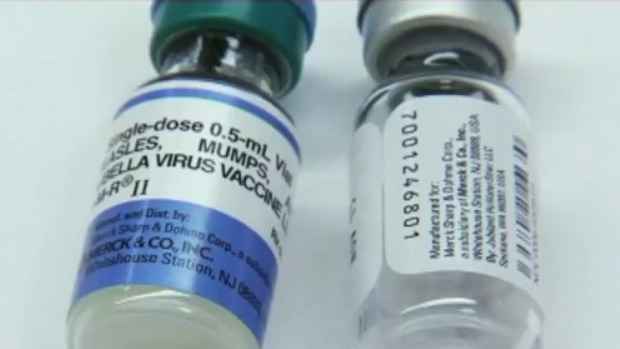‘We’re really vulnerable to vaccine-preventable diseases right now,’ experts say
[anvplayer video=”5070253″ station=”998122″]
It’s a part of growing up — kids getting their first dose of measles and other critical vaccines.
“I suspect we’re way behind,” says Dr. Jill Foster, M Health Fairview’s division director of pediatric infectious diseases. “The age that children get a measles shot is usually at 12 months and 4 years.”
Foster says COVID-19 concerns are affecting the number of youngsters getting their shots for measles, chickenpox, rubella and other viruses.
And now, the World Health Organization is expressing concern that the global progress made against measles will be threatened amid the ongoing pandemic.
"So a lot of people, I think, have been hesitant to go to the pediatrician to get routine vaccinations ’cause they’re worried they’ll expose their children to somebody there who’s ill,” Foster explains. “We’re really vulnerable right now to vaccine-preventable diseases, specifically measles being one of them."

[KSTP-TV]
The latest numbers from the Minnesota Department of Health show the missed vaccination rate for 2-year-olds is steadily climbing from about 21% in 2019, before the pandemic, to nearly 26% in 2020.
MDH says so far this year, about 34% haven’t gotten their routine shots.
“Any population that allows its measles vaccine rates to drop is highly vulnerable to an outbreak by a single importation,” says Dr. Frank Rhame, an infectious disease specialist with Allina Health.
He says there’s no ongoing measles transmission in the U.S. yet.
But he worries about "importation" — an infected person coming from outside the U.S. spreading the virus.
“We don’t have it circulating right now. So it becomes a problem when there is an importation,” Rhame says. “If there are a low enough fraction of people vaccinated, that allows that importation to produce an outbreak."
And while worldwide reported measles cases have fallen, a lack of vaccinations is prompting concern.
A report released this week by the WHO and the Centers for Disease Control says in 2020, more than 22 million infants missed their first dose of measles vaccine.
The agency says that’s the largest increase in unvaccinated children in twenty years.
The CDC says outbreaks have occurred in 26 countries.
"Measles is one of the most easily spread illnesses that there is,” Foster notes. “Measles tends to occur in outbreaks where somebody comes in from someplace else and infects one person or a lot of people at a social gathering.”
She says that’s the bad news.
While Foster says she’s concerned about unvaccinated kids being vulnerable, she also says there is good news.
"We’re starting to see a little bit of an uptick of kids coming in for catchup,” she says. “People whose minds aren’t quite as much on covid, and some people are bringing their kids in to get their covid shots."
Some vaccines require more than one dose: a series.
The CDC says if your child misses a shot, you don’t need to start over. You can just go back to your child’s pediatrician for the next vaccination.
Foster’s advice to parents?
Think about the health of your both child and other kids who may be immunocompromised.
"This is one of those places where you’re not just protecting your child,” Foster says. “You’re protecting other children and if you’re the mother of a child that has a problem with their immune system, you’re depending on these other moms and dads to get their kids vaccinated."